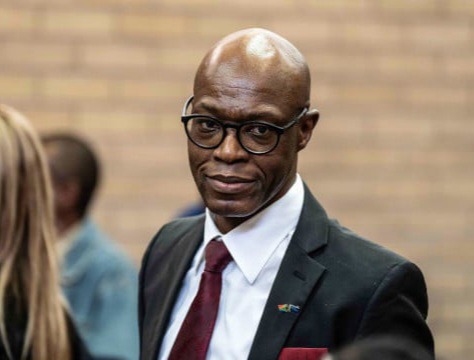Former Eskom CEO Matshela Koko has firmly denied claims of political neutrality, stating he will not pledge allegiance to either the Economic Freedom Fighters (EFF) or the newly established MK Party. In a passionate exchange on the social media platform X, Koko responded to a user who labeled him as politically neutral.
“You got it wrong, my brother. I am not neutral. There is no such thing as being neutral in politics. I am not ANC. The ANC has reached its sell-by date. It must die. I am not the DA either. That’s not being neutral,” Koko declared emphatically.
Koko’s remarks were prompted by a follower’s comment, “You are still neutral, I like that,” which followed Koko’s own post about his interactions with EFF supporters. In his original post, he wrote, “It saddens me to block fellow Fighters who turn out to be vulgar on my timeline, but I don’t have a choice. I salute all the Fighters who keep the debates and the disagreements clean. I salute your Revolutionary spirit. Keep it up!”
Despite the user’s attempt to label him as neutral, Koko was clear in his refusal to align himself with either political party. “What you must never do is force me to make the choice between MK Party and the EFF. You are going to fall short,” he added, emphasizing his desire to remain independent of both groups.
Koko’s outspoken stance extends to his criticism of the African National Congress (ANC). He openly stated that the ANC has “reached its sell-by date” and asserted that the party “must die.” This declaration underscores his disillusionment with the ANC’s current trajectory and governance.
By declining to publicly affiliate with either the EFF or the MK Party, Koko appears to be taking a strategic approach to his political positioning. His refusal to engage in what he perceives as vulgar discourse further highlights his commitment to maintaining a standard of constructive debate. Koko’s statements have reignited discussions about his political beliefs and the influence of public figures in shaping South Africa’s political landscape.
Koko’s comments come at a time when South African politics is highly polarized, and his refusal to align with major political factions may influence public perception and discourse. As a prominent figure, his stance could inspire others to reconsider their own political affiliations and the role of neutrality in a divided political environment.
Key Points:
- Denial of Neutrality: Matshela Koko rejects being labeled as politically neutral, clarifying that neutrality does not exist in politics.
- Rejection of Major Parties: Koko dismisses both the ANC and the DA, stating that the ANC is past its prime and the DA does not represent neutrality.
- Criticism of ANC: He openly criticizes the African National Congress, declaring its time has ended.
- Refusal to Choose Between EFF and MK Party: Koko insists he will not be forced to choose between supporting the EFF or the MK Party, led by former President Jacob Zuma.
- Commitment to Constructive Debate: He emphasizes his preference for respectful and meaningful discussions, distancing himself from what he terms as vulgar interactions.
- Impact on Political Discourse: Koko’s stance may influence public opinion and highlight the complexities of political alignment in South Africa.
Reactions:
Koko’s declarations have sparked a range of responses on social media and within political circles. Supporters commend his integrity and willingness to stand firm in his beliefs, while critics question his decision to distance himself from established political parties. The broader implications of his stance remain to be seen, as South Africa continues to navigate its complex political landscape.
Future Implications:
As South Africa approaches upcoming elections and continues to grapple with political and economic challenges, Koko’s position could play a role in shaping the discourse around political allegiance and neutrality. His influence as a former Eskom CEO and public figure adds weight to his statements, potentially swaying public sentiment and encouraging a reevaluation of political loyalties.






















